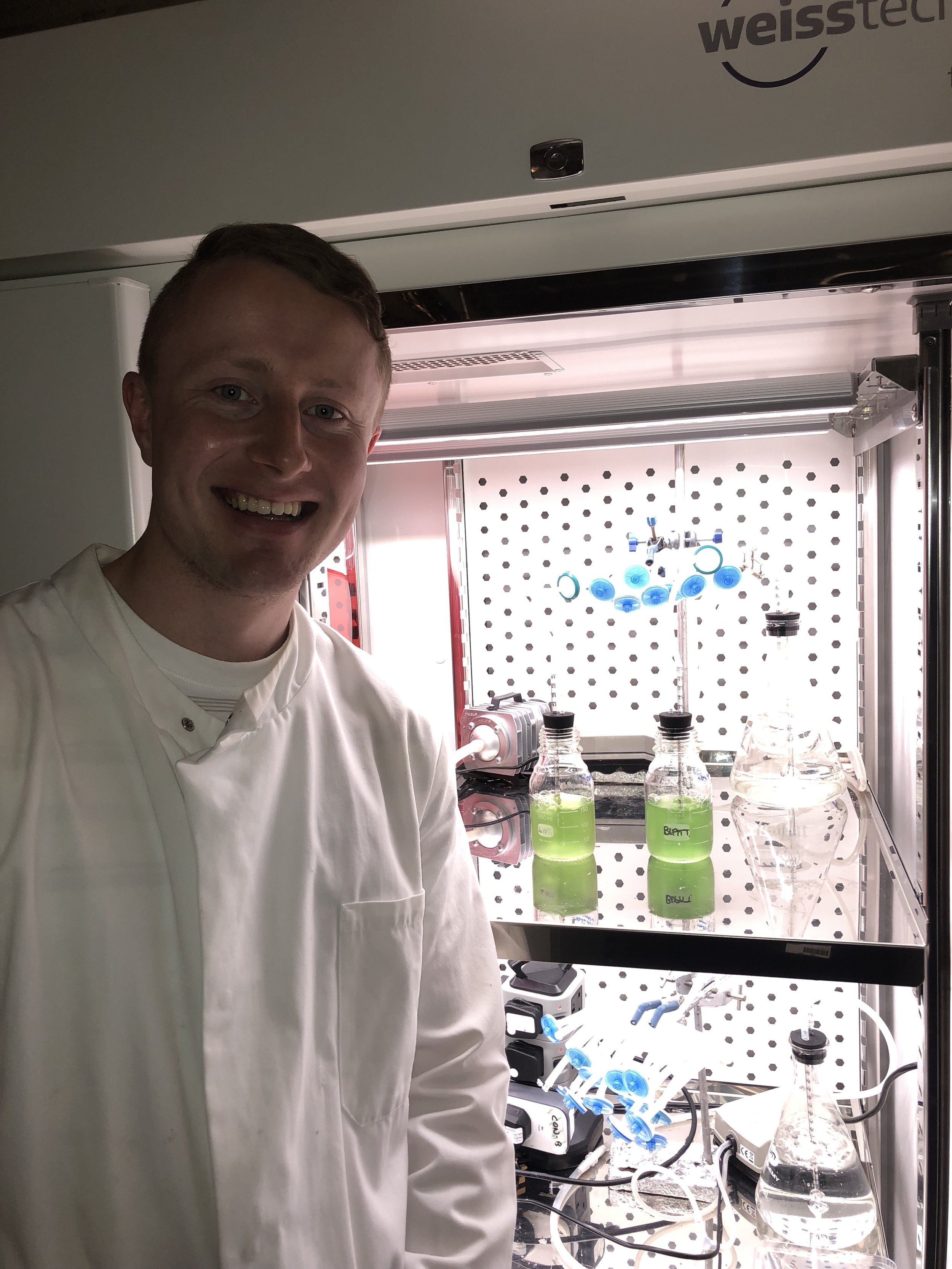Liam’s PHD investigates how light can control gene expression
For his PHD, Liam Forbes is Applying Optogenetics in Green Cell Factories, with Xanthella. In this case study, he tells us about his hopes for the future regarding photosynthetic organisms and how one day they may be used to make products using light and CO2.
Why did you decide to undertake this project?
My PhD project involves applying optogenetic tools to control gene expression in photosynthetic bacteria (cyanobacteria). These are tools that allow control of gene expression using light, which allows more precise and dynamic control of genes in metabolic pathways versus chemically inducible or constitutive promoters. Optogenetic tools should help improve the low product tires often achieved when using cyanobacteria as a 'green' cell chassis for the production of biochemicals.
I first became interested in cyanobacterial/algal biotechnology during my final year undergraduate lab project which involved testing the strength of various synthetic promoters in cyanobacteria. I then completed the IBioIC MSc Industrial Biotechnology course, which improved my understanding of subjects such as synthetic biology, bioprocessing, and downstream processing. Finally, I started this PhD project, where I knew I had strong background knowledge and would benefit from both the IBioIC collaborative training programme and a placement with my industrial partner.
What are your ambitions for the future?
Upon finishing my PhD, my aim is to work in the UK biotech industry, ideally in research and development. I would love to work with an innovative company that is focused on developing more environmentally sustainable products, processes, or services. There are many companies doing very interesting work here in Scotland like ScotBio, MiAlgae, and Ingenza.
What excites you about your research?
I enjoy the opportunity to solve problems, which has been a regular occurrence during my project. However, what I find most interesting is the idea that one day we will hopefully be able to use photosynthetic organisms to convert CO2 into a huge range of consumer goods. I hope that the optogenetic tools developed in my project may be useful for this one day.
Where/what do you think the next innovation in IB will be?
As I am currently working in the algal field, I would be happy to see more companies being able to achieve cost-effective production at scale. The potential of photosynthetic organisms to directly convert light and CO2 into value-added products is significant. However, low product yields versus more commonly used cell chassis, especially at the industrial scale, is a big issue. Similarly, gas fermentation by heterotrophs to convert CO2 and other flue gases into valuable products is a technology that I think will be very important in a low-carbon economy.
What is an interesting fact about you / what do you enjoy doing away from your studies?
When I am not in the lab or in the office as part of my PhD work, the thing I enjoy most is watching football. I have never been to a game outside of the UK, so I would love to attend a European match one day, or even somewhere further afield.

